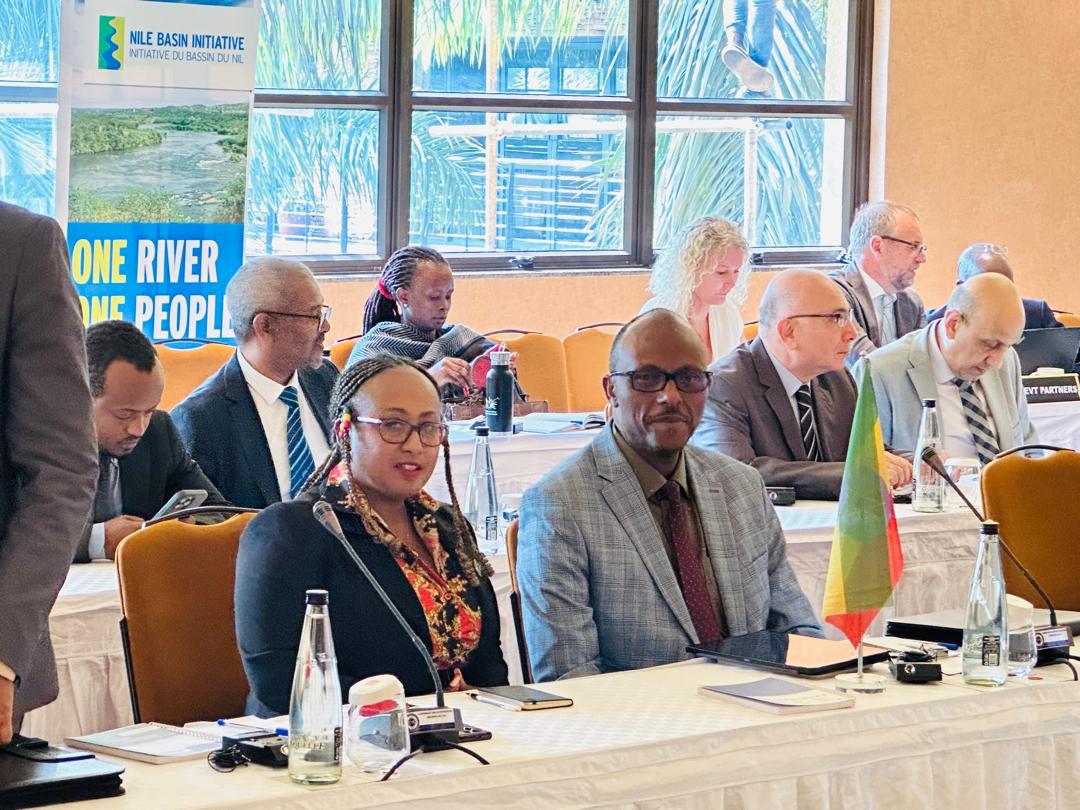In a landmark development poised to reshape regional cooperation on the Nile River, the Republic of South Sudan has ratified the Cooperative Framework Agreement (CFA) under the Nile Basin Initiative (NBI).
This crucial step significantly advances the long-anticipated formation of the Nile River Commission, a permanent legal and institutional body that would govern the shared management of the Nile River’s resources.
The announcement was made during the 32nd annual Nile Council of Ministers meeting, recently held in Kampala, Uganda, a gathering that brought together high-level representatives from the Nile Basin countries.
The Nile River, which stretches over 6,650 kilometers and traverses eleven countries, is one of the world’s most contested and vital watercourses. It is central to the livelihoods of over 300 million people across the basin.
The CFA, first introduced in 2010, seeks to establish a framework for equitable and reasonable utilization of the Nile’s waters, moving away from colonial-era treaties that favored downstream countries, particularly Egypt and Sudan.
Ratification of the CFA by at least six member states is a prerequisite for the formation of the Nile River Commission, and South Sudan’s recent ratification brings the region closer to meeting this threshold.
Uganda’s Vice President, Jessica Alupo, opened the ministerial meeting in Kampala by lauding South Sudan’s decision as a milestone in regional cooperation. “South Sudan’s ratification of the Cooperative Framework Agreement is a strong testament to the shared vision of the Nile Basin countries for sustainable and equitable management of our shared water resources,” Alupo stated.
She further called on other basin states that have yet to ratify the CFA to do so without delay, stressing the importance of unity and collective action in addressing the challenges facing the Nile Basin.
Kampala Meeting: Pivotal Discussions on Regional Water Governance
The annual Nile Council of Ministers meeting, hosted this year by Uganda, provided a platform for the riparian states to discuss the next steps towards the establishment of the Nile River Commission.
The meeting, attended by ministers of water resources, foreign affairs, and other senior officials from the member states, was marked by intense deliberations on the legal and institutional framework needed to ensure the commission’s effectiveness once established.
One of the central themes of the Kampala discussions was the urgency of moving from the transitional Nile Basin Initiative to the more permanent Nile River Basin Commission.
The NBI, established in 1999, has played a crucial role in fostering dialogue, cooperation, and coordinated efforts among the Nile Basin countries. However, it is recognized as a temporary arrangement, lacking the legal mandate and authority to enforce agreements and manage conflicts over water use.
“The Nile Basin Initiative has laid a strong foundation for cooperation, but the time has come for us to institutionalize our efforts through a permanent commission,” Vice President Alupo emphasized in her address to the council. She highlighted Uganda’s role as a staunch advocate for the establishment of a binding legal framework that would promote sustainable and equitable use of the Nile’s resources, ensuring that all member states benefit fairly from the river.
The formation of the Nile River Commission, Alupo argued, is not only necessary for managing current challenges but also for addressing future pressures, such as climate change, population growth, and increased agricultural demands. She noted that the Nile Basin region is already experiencing the adverse effects of these pressures, including more frequent and severe floods, droughts, and conflicts over water resources.
South Sudan’s ratification of the CFA has been widely welcomed by other Nile Basin countries, particularly Ethiopia, which has been a vocal proponent of equitable water sharing in the region. Ethiopian Minister of Water and Energy, Habtamu Itefa, commended South Sudan for its commitment to regional cooperation. “With South Sudan’s ratification, we are now closer than ever to realizing our shared dream of a Nile River Commission that will ensure the sustainable management of our common resource,” Itefa remarked.
He also addressed the challenges that lie ahead, emphasizing that the establishment of the commission would require continued political will, diplomatic engagement, and technical cooperation among the member states. “The challenges we face are multifaceted, ranging from climate variability and environmental degradation to socio-economic development and geopolitical tensions. It is imperative that we work together to build a resilient framework that can address these issues comprehensively,” Itefa added.
One of the most significant challenges remains the participation of Egypt, the largest and most populous Nile Basin country, which has not ratified the CFA and remains cautious about its implications for its historical water rights.
The colonial-era treaties, which Egypt relies on, allocated the lion’s share of the Nile waters to Egypt and Sudan, leaving upstream countries with little legal control over the use of the river’s resources.
Vice President Alupo, in her address, made a direct appeal to Egypt to reconsider its position and join the collective effort to manage the Nile equitably. “We must recognize that the future of the Nile Basin depends on the cooperation and mutual understanding of all its members. While we respect the historical agreements, we must also acknowledge that the realities of today require a new approach—one that is fair, inclusive, and reflective of the needs of all basin countries,” Alupo stated.
The Kampala meeting also provided an opportunity for the Nile Basin countries to reflect on the achievements of the NBI over the past two decades. Since its inception, the NBI has facilitated numerous regional projects aimed at improving water management, boosting agricultural productivity, enhancing power generation and interconnection, and building resilience to climate change. These projects have directly benefited millions of people across the basin, contributing to regional stability and development.
For instance, the NBI’s efforts in promoting joint hydroelectric projects have led to increased power generation and cross-border energy trade, which have been vital for economic growth in the region.
Additionally, initiatives in watershed management and flood preparedness have helped mitigate the impact of extreme weather events, which are becoming more frequent due to climate change.
As the Nile Basin countries look towards the future, the focus is now on ensuring that the gains made under the NBI are consolidated and expanded under the new Nile River Commission.
The commission, once established, is expected to play a central role in managing the Nile’s resources in a way that balances the needs of all member states while protecting the river’s ecosystem.
Do you have a story in your community or an opinion to share with us: Email us at Submit an Article









